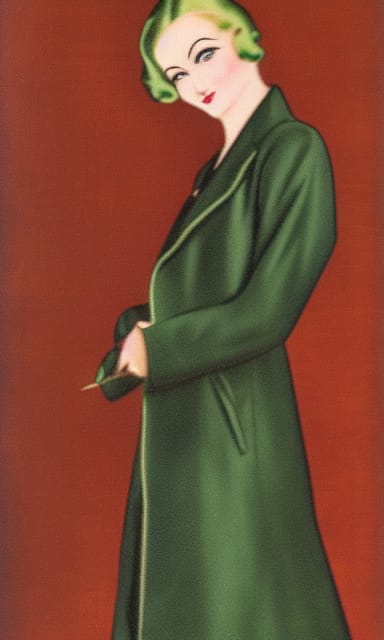The Weekly Infodump, 2022/11/15

Welcome to The Weekly Infodump, which contains a short write-up of whatever is on my mind. You are allowed to share this newsletter with others and I hope you will.
(Links) I am an avid reader of advice columns because I love Neurotypical Mess I am a student of the human condition. Someday I'll devote an entire newsletter to this topic.
My recent favorite is this installment of Slate's Dear Prudence, in which columnist Jenée Desmond-Harris expertly takes "Muumuu Murderer" to task and shuts her fatphobic shit down before linking to this post from the blog Dances with Fat, which explains why thin people buying and altering plus-size clothes from thrift stores, while legal, is kind of an asshole move.
(This is not so dissimilar to the phenomenon of people buying preemie clothes for dolls (yes, this happens): sure, you've saved some money but you've also made life that much harder for the parents who are trying to dress their newborn before bringing them home from the hospital.)
There's an autistic version of this, too, which occurs more frequently as the products that serve as lifelines to autists and other ND people -- weighted blankets, noise-cancelling headphones -- get mainstreamed. Suddenly, these items (which once inspired mockery) are "for everyone," which is how we find ourselves in the position that a friend currently finds themself in: having to wait 3-4 months(!) until their replacement Loop Engage earplugs are back in stock.
It's part of the longstanding, ongoing process of disability erasure that occurs in product design and marketing, except there's a less-discussed after-market component where we can't get our needs met.
No one is saying you're not allowed to have and enjoy such things. You are, because they are awesome! However, for us, it goes beyond preference: these products can mean the difference between being able to function and having a meltdown, which is a medical event.
Basically, it boils down to: your nice-to-have is my need-to-have.
(Links) As part of my day job, which I would call "publishing-adjacent," I read a lot of trade reviews (think Publishers Weekly, or Kirkus Reviews). Over the last few years, I've noticed an uptick in the usage of "neurodivergent" as a character descriptor. Cool! Except...when I follow up, it turns out what the reviewer means by "neurodivergent" is "has social anxiety" or sometimes just "is non-specifically quirky."
And...hmmm. Ok.
I have complicated feelings about this.
So I am going to tread carefully here:
I am not the arbiter of neurodivergence; it's not up to me to declare what does or doesn't belong under this large-by-design umbrella.
It also doesn't help that people use the word "neurodivergent" in different ways; here is a (non-exhaustive) list of usage types I have encountered in the wild:
- [by NDs] as a show of political solidarity: regardless of our individual labels (or lack thereof), we use it to draw attention to our shared, ongoing struggle for human rights for all disabled people, including neurological minorities
- [by NDs] as a personal descriptor by self-identified/self-diagnosed ND people who lack the privilege of a formal diagnosis; or by those whose multiple neurodivergences don't fit comfortably under a single label
- [by NTs] as a euphemism for "probably autistic but of course we can't SAY that" (except we can, it's not a bad word!)
However, I do think there is a tendency on the part of allistic society to ignore the specific historical and cultural context of "neurodiversity" -- an explicitly political term coined by Australian sociologist Judy Singer (do purchase and read her book) -- in a way that effectively erases autistic people.
When people say, "TECHNICALLY there's no such thing as a 'normal' brain, which makes EVERYONE neurodivergent!" it reminds me a lot of when people say, "Everyone's on the spectrum!" or "We're all a little autistic!" (NO.)
The result? An (admittedly imperfect) term that I once found extremely helpful for finding books that resonated with my own experiences is rendered meaningless. (But why don't you just look for reviews that state that the character is autistic, you ask? Because too often it's not mentioned, even when it's an essential part of the book!)
I understand why this happens. Depoliticizing neurodiversity helps to make it more palatable, which is why people grab hold of the premise (hooray for different types of brains, which are essential for the survival of the human species) and discard the conclusion (AND THUS we need to create a more inclusive society by (re)distributing opportunity and resources to ensure that everyone has what they need to thrive.).
But it hurts and it harms.
The shift, from "neurodiversity as social justice movement" to "neurodiversity as marketing buzzword," reminds me of the rise and fall of the #ownvoices hashtag, which coincidentally was also coined by an autistic self-advocate, expanded organically to include a variety of marginalized groups, and...subsequently coopted by the publishing industry.
You have reached the end of the newsletter. There is no more to read.